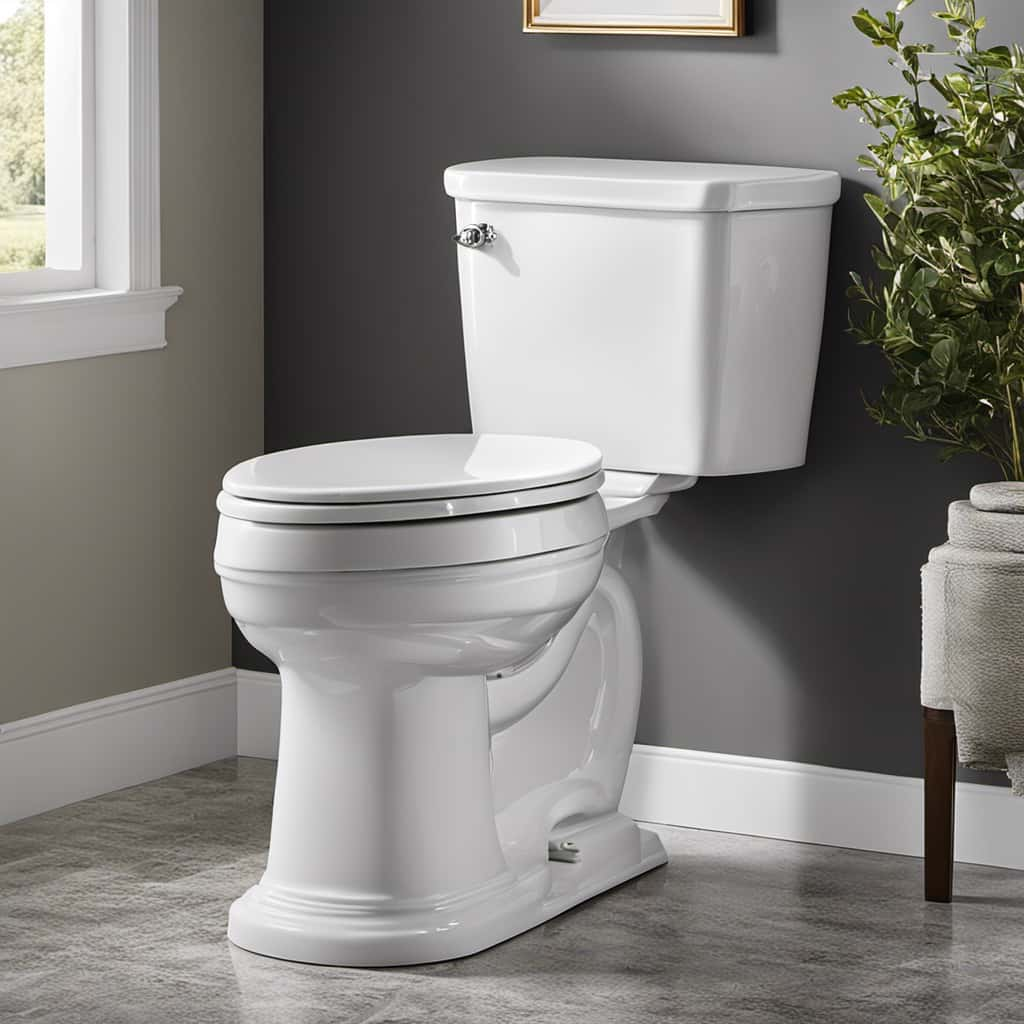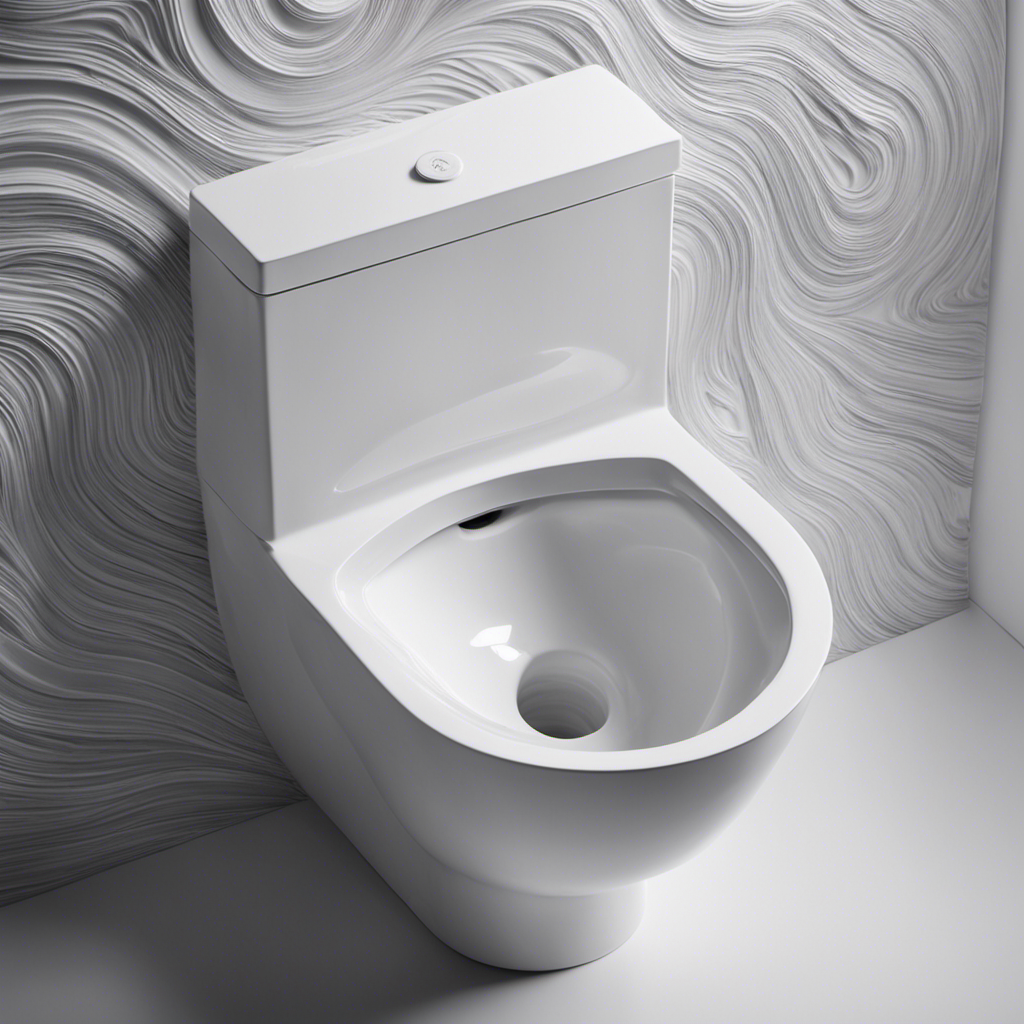Have you ever been curious about whether it’s permissible to dispose of oil in the sink drain? It’s common knowledge that it feels easy, yet what are the repercussions?
In this article, we will explore the impact of oil on wastewater treatment systems, the environmental damage caused by oil in waterways, and the health risks associated with oil-contaminated water.
We will also provide tips for proper disposal and recycling of oil. Join us as we delve into the importance of understanding and practicing oil disposal best practices.
Key Takeaways
- Oil disrupts the normal functioning of septic systems and decreases treatment efficiency, leading to the release of untreated wastewater into the environment.
- Oil poured down the drain can accumulate in pipes, causing clogs and blockages, resulting in slow drainage and backups.
- Oil buildup in plumbing systems can harm marine life and contaminate waterways, leading to environmental disruption.
- Proper oil disposal and recycling through local recycling centers or designated collection points are necessary to prevent damage to wastewater treatment systems and preserve the environment and aquatic life.
The Impact of Oil on Wastewater Treatment Systems
How does oil impact wastewater treatment systems?

The presence of oil in wastewater can have significant consequences on the efficiency and effectiveness of treatment systems. When oil is improperly disposed of and ends up in septic systems, it can disrupt the normal functioning of these systems.
Oil forms a layer on the surface of the water, preventing oxygen transfer and hindering the growth of beneficial microorganisms responsible for breaking down organic matter. This can lead to a decrease in the treatment efficiency, resulting in the release of partially treated or untreated wastewater into the environment.
Moreover, the accumulation of oil in septic systems can cause clogging and blockages, leading to costly repairs and maintenance.
It’s crucial to properly dispose of oil to prevent these detrimental effects on wastewater treatment systems.

Consequences of Oil Buildup in Plumbing Systems
The presence of oil in plumbing systems can have detrimental consequences on their functionality and efficiency. When oil is poured down the drain, it can accumulate in the pipes, leading to clogs and blockages. This can result in slow drainage, backups, and even burst pipes. Additionally, the buildup of oil in plumbing systems can also have a negative impact on marine life. As oil makes its way into wastewater and eventually into rivers, lakes, and oceans, it can contaminate aquatic ecosystems. The toxic substances in oil can harm fish, plants, and other organisms, disrupting the delicate balance of marine ecosystems. To avoid these consequences, it is crucial to properly dispose of oil and grease by recycling or disposing of them in designated containers.
| Consequences of Oil Buildup in Plumbing Systems | Impact on Marine Life |
|---|---|
| Clogs and blockages | Harm to fish |
| Slow drainage | Contamination |
| Backups | Disruption |
Environmental Damage Caused by Oil in Waterways
As we continue our discussion on the consequences of oil buildup in plumbing systems, it’s important to address the environmental damage caused by oil in waterways. Oil pollution is a significant concern as it leads to water contamination, posing serious threats to ecosystems.
Here are three key aspects to consider:
- Impact on Aquatic Life: When oil enters water bodies, it forms a slick on the surface, preventing oxygen from reaching marine organisms. This can lead to suffocation and death of fish, birds, and other aquatic animals. Additionally, oil can penetrate the feathers and fur of wildlife, impairing their ability to swim or fly.
- Disruption of Ecosystems: Oil pollution disrupts the delicate balance of ecosystems. It can harm plants and algae, which serve as the foundation of food chains. As a result, the entire ecosystem suffers, with cascading effects on other species and biodiversity.
- Long-term Effects: Oil contamination can persist in waterways for years, accumulating in sediments and affecting future generations of organisms. This can have lasting impacts on the health and stability of ecosystems, making it crucial to prevent oil from entering water systems in the first place.
Addressing oil pollution and minimizing water contamination are essential steps towards preserving our environment and ensuring the well-being of aquatic life.

How Oil Affects Aquatic Life and Ecosystems
When oil is released into aquatic environments, it can have a devastating impact on marine life and ecosystems. The toxic components of oil can disrupt the natural balance of the ecosystem, leading to the death of fish, shellfish, and other aquatic organisms.
Additionally, oil spills can contaminate the water, making it difficult for organisms to breathe, feed, and reproduce. Overall, the presence of oil in aquatic environments poses a serious threat to the health and survival of marine life and the stability of ecosystems.
Oil and Aquatic Ecosystems
Although oil may seem harmless when it goes down the drain, it can have devastating effects on aquatic life and ecosystems. Here are three reasons why oil and aquatic ecosystems don’t mix:
- Oil spills: Accidental or intentional releases of oil into water bodies can lead to large-scale contamination. The oil forms a slick on the water surface, preventing oxygen exchange and sunlight penetration. This disrupts the delicate balance of the ecosystem, harming plants and animals that rely on these resources.
- Toxicity: Oil contains harmful chemicals such as polycyclic aromatic hydrocarbons (PAHs) and heavy metals. These substances can poison aquatic organisms, impairing their reproduction, growth, and immune function. Even small amounts of oil pollution can have long-lasting impacts on both individual organisms and the entire ecosystem.
- Habitat destruction: Oil can coat and smother habitats like coral reefs, seagrass beds, and mangroves. These important habitats provide shelter, breeding grounds, and food for countless species. When these habitats are destroyed or altered by oil, it disrupts the interconnected web of life, leading to declines in biodiversity and overall ecosystem health.
Understanding the detrimental effects of oil on aquatic ecosystems is crucial for implementing effective preventative measures and mitigating the damage caused by oil pollution.

Impact on Marine Life
Now let’s dive deeper into the impact of oil on marine life and how it directly affects the delicate balance of aquatic ecosystems.
Oil spills have devastating effects on marine ecosystems, causing harm to a wide range of marine animals and organisms. The toxic properties of oil can suffocate and smother marine life, leading to their death.
Oil can also contaminate the food chain, as it’s ingested by smaller organisms and then passed on to larger predators. This can result in bioaccumulation, where the concentration of toxins increases as it moves up the food chain.
Marine animals may also suffer from physical harm, such as oil coating their feathers or fur, impairing their ability to regulate body temperature or fly.

The long-term effects of oil spills on marine ecosystems are extensive, with potential impacts lasting for years or even decades.
It’s crucial to take proactive measures to prevent oil spills and minimize their impact on marine life and ecosystems.
Health Risks Associated With Oil-Contaminated Water
Our research has shown that exposure to oil-contaminated water poses significant health risks to individuals. Here are three important points to consider:
- Toxicity: Oil contains various harmful chemicals, such as benzene, toluene, and polycyclic aromatic hydrocarbons (PAHs). These substances can cause respiratory problems, skin irritation, and even cancer when ingested or absorbed through the skin.
- Contaminated Food Chain: Oil spills can contaminate water sources, leading to the accumulation of toxins in aquatic organisms. When humans consume these contaminated organisms, they may experience gastrointestinal issues, organ damage, and long-term health problems.
- Ecological Impact: Health risks associated with oil-contaminated water extend beyond the individual level. Environmental damage caused by oil spills can disrupt ecosystems, leading to the decline of marine life populations, loss of biodiversity, and overall degradation of habitats.
Considering these health risks and environmental damage, it’s essential to explore alternatives to pouring oil down the drain.

Alternatives to Pouring Oil Down the Drain
Using the article determiner, we can say that the best solution for disposing of oil is to explore recycling options or ensure its proper disposal.
Instead of pouring oil down the drain, which can lead to harmful consequences for the environment and public health, there are several alternatives available.
One option is to recycle the oil through local recycling centers or programs that accept used cooking oil. These centers often have processes in place to convert the used oil into biodiesel or other useful products.
Another alternative is to properly dispose of the oil by collecting it in a sealable container and taking it to a designated collection point, such as a hazardous waste facility or a local recycling event.

Recycling Options for Used Cooking Oil
When it comes to the disposal of used cooking oil, it’s important to consider its environmental impact and explore beneficial reuse options.
Pouring oil down the drain can lead to clogged pipes and sewer backups, causing harm to the environment and potentially expensive repairs.
However, there are recycling options available such as recycling centers that collect and process used cooking oil into biodiesel or other useful products, providing a more sustainable and responsible way to manage this waste.
Environmental Impact of Disposal
The environmental impact of disposal can be mitigated through recycling options for used cooking oil. Improper disposal of cooking oil can have severe consequences, particularly on water quality. When oil is poured down the drain, it can clog pipes and lead to sewer backups, causing damage to infrastructure and potentially contaminating water sources.

Recycling used cooking oil offers several benefits that help minimize these negative effects:
- Environmental Protection: Recycling used cooking oil reduces the amount of oil that ends up in landfills or water bodies, preventing pollution and protecting ecosystems.
- Renewable Energy Production: Used cooking oil can be converted into biodiesel, a clean-burning alternative to conventional diesel fuel. This reduces reliance on fossil fuels and decreases greenhouse gas emissions.
- Economic Opportunities: Recycling used cooking oil creates jobs in the collection, processing, and manufacturing sectors, contributing to local economies.
Beneficial Reuse Options
To continue our discussion on the environmental impact of disposal, let’s explore the beneficial reuse options for used cooking oil.
When it comes to used cooking oil, there are several beneficial reuse strategies that can be implemented to minimize environmental harm and maximize economic benefits.
One common option is recycling the oil for biodiesel production. Used cooking oil can be processed and converted into biodiesel, a renewable and cleaner-burning fuel alternative to traditional diesel. This not only reduces the demand for fossil fuels but also helps reduce greenhouse gas emissions.

Additionally, used cooking oil can be used in animal feed production, providing a valuable source of energy and nutrients.
Proper Disposal Methods for Motor Oil
Although it’s commonly overlooked, we must be aware of the importance of using proper disposal methods for motor oil. Improper disposal can have serious environmental consequences and can also lead to legal consequences for individuals who don’t follow proper procedures.
Here are three reasons why proper disposal methods for motor oil are crucial:
- Protecting the environment: Motor oil contains harmful chemicals and heavy metals that can contaminate water sources and harm aquatic life. By using proper disposal methods, such as recycling or taking it to a designated collection center, we can prevent these pollutants from entering the environment.
- Preventing damage to infrastructure: Improperly disposed motor oil can clog drains and sewer systems, leading to costly repairs and maintenance. By disposing of motor oil correctly, we can help maintain the functionality and longevity of our infrastructure.
- Ensuring compliance with regulations: Many jurisdictions have specific regulations regarding the disposal of motor oil. By following these regulations, we not only avoid legal trouble but also contribute to a safer and cleaner community.
Tips for Preventing Oil From Entering Drains
One important step we can take to prevent oil from entering drains is by properly disposing of it. Improper oil disposal can lead to oil spills and contamination of water sources, which can have detrimental effects on the environment. To ensure proper oil disposal, it is essential to follow these tips:

| Tips for Preventing Oil From Entering Drains | |||
|---|---|---|---|
| 1. Use a designated oil container | 2. Seal the container tightly | 3. Store the container in a cool, dry place | 4. Dispose of the oil at a recycling center or a designated facility |
By using a designated oil container and sealing it tightly, we can prevent any accidental spills or leaks. Storing the container in a cool and dry place helps maintain its integrity. Finally, it is crucial to dispose of the oil at a recycling center or a designated facility that specializes in handling oil waste. By following these tips, we can effectively prevent oil from entering drains and protect our environment from potential harm.
Now, let’s delve into the importance of educating others about oil disposal best practices.
Importance of Educating Others About Oil Disposal Best Practices
Educating others about oil disposal best practices is crucial for preventing environmental contamination. By spreading awareness and knowledge, we can promote sustainable waste management and ensure that oil is disposed of responsibly.
This not only protects our natural resources and ecosystems but also helps to maintain a clean and healthy environment for future generations.

Preventing Environmental Contamination
We should emphasize the significance of educating others about best practices for oil disposal to prevent environmental contamination. Here are three reasons why this education is crucial:
- Preventing pollution: Proper oil disposal is essential in preventing pollution of our waterways and soil. When oil is poured down the drain or disposed of improperly, it can contaminate our water sources and harm aquatic life. Educating others about the proper methods of oil disposal can help minimize pollution and protect our ecosystems.
- Sustainable practices: By educating others about proper oil disposal, we promote sustainable practices. Recycling used oil allows it to be reused, reducing the need for virgin oil production and decreasing our reliance on fossil fuel extraction. This contributes to a more sustainable and environmentally-friendly approach to oil usage.
- Preserving natural resources: Oil is a valuable resource that should be conserved. By educating others about the importance of proper oil disposal, we can help preserve this finite resource. Recycling used oil not only reduces environmental contamination but also ensures that this resource can be reused in various industries.
Promoting Sustainable Waste Management
To promote sustainable waste management and prevent environmental contamination, it is crucial that we educate others about the best practices for oil disposal. Proper oil disposal is essential for waste reduction and ensuring sustainable practices. By following the correct methods, we can minimize the negative impact on the environment and protect our water sources from contamination.
One of the most effective ways to educate others about oil disposal best practices is through clear and concise communication. Providing information on the proper containers for oil storage, the importance of recycling used oil, and the potential consequences of improper disposal can help raise awareness and encourage responsible actions.
To grab the attention of the audience, here is a table highlighting the do’s and don’ts of oil disposal:

| Do’s | Don’ts |
|---|---|
| Use designated oil collection points | Pour oil down the drain |
| Store used oil in sealed containers | Mix oil with other substances |
| Recycle used oil properly | Dump oil in the trash |
| Dispose of oil through authorized facilities | Burn oil or bury it |
Encouraging Responsible Oil Disposal
Continuing our focus on sustainable waste management and promoting responsible oil disposal, let’s delve into the importance of educating others about best practices for oil disposal.
By spreading awareness and knowledge about proper oil disposal methods, we can contribute to reducing oil pollution and its harmful effects on the environment.
Here are three key reasons why educating others about oil disposal best practices is crucial:
- Preventing water contamination: Properly disposing of oil prevents it from entering water bodies, protecting aquatic life and ensuring the safety of our drinking water.
- Preserving soil quality: Dumping oil into the ground can lead to soil contamination, affecting plant growth and agricultural productivity. Educating others about the benefits of composting oil waste can help minimize these negative impacts.
- Promoting sustainability: By encouraging responsible oil disposal, we can contribute to a more sustainable future, reducing our dependence on fossil fuels and promoting the use of renewable energy sources.
Conclusion
In conclusion, it’s crucial to understand the negative impact of oil going down the drain.

Did you know that according to the Environmental Protection Agency (EPA), just one gallon of motor oil can contaminate up to one million gallons of water? This staggering statistic emphasizes the importance of proper oil disposal to protect our wastewater treatment systems, plumbing, waterways, aquatic life, and even our health.
Let’s make a conscious effort to educate ourselves and others about the best practices for oil disposal to safeguard our environment.









